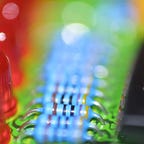What is the heart beat sensor?
Heartbeat Sensor: Monitoring Cardiovascular Health
Overview:
A heartbeat sensor, also known as a heart rate monitor or pulse sensor, is a medical device or wearable technology designed to measure and display an individual’s heart rate in real-time. This technology has applications in various fields, including healthcare, fitness, and sports.
Principle of Operation:
Optical Sensors: Many modern heartbeat sensors use optical sensors to detect blood volume changes in small vessels beneath the skin. These sensors emit light and measure the amount of light that is absorbed by the blood, allowing the device to calculate the heart rate.
Electrocardiography (ECG): Some advanced heart rate monitors utilize ECG technology, which measures the electrical activity of the heart. Electrodes placed on the skin detect the electrical impulses generated by the heart and provide a detailed analysis of the cardiac rhythm.
Applications:
Fitness Tracking: Heart rate sensors are commonly integrated into fitness trackers and smartwatches, providing users with real-time feedback on their cardiovascular activity during exercise.
Medical Monitoring: Healthcare professionals use more sophisticated heartbeat sensors for continuous monitoring of patients in hospitals or during rehabilitation.
Sports Performance: Athletes use heartbeat sensors to optimize training regimens and monitor their physical exertion levels during competitions.
Benefits:
Early Detection: Continuous monitoring allows for early detection of abnormal heart rhythms or potential cardiovascular issues.
Performance Optimization: In fitness and sports, individuals can tailor their activities based on real-time heart rate data for optimal performance and injury prevention.
In conclusion, heartbeat sensors play a crucial role in promoting cardiovascular health, providing valuable insights for both medical and personal use. Whether integrated into everyday wearables or used in clinical settings, these sensors contribute to a better understanding of heart health and overall well-being.
